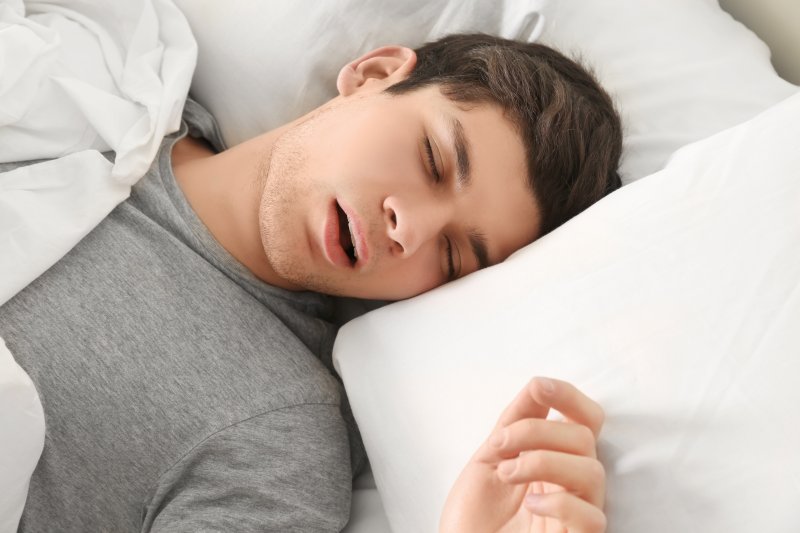Are you living with diabetes? Do you struggle to get a full night’s rest because of your sleep apnea symptoms? The link between these two conditions is well researched with countless experts stating how one can negatively impact the other if left untreated. You may not realize, though, that your blood sugar and sleep patterns can also seriously affect your eyesight. Keep reading to discover why undergoing sleep apnea treatment can help you avoid losing your vision.
How Can Your Vision Be at Risk?
It’s no secret that unmanaged diabetes can have negative side effects that impact your heart, brain, and other vital organs throughout the body. However, researchers now suggest that if you are also suffering from sleep apnea, you may be at risk for diabetic macular edema – a condition that causes fluid to build up in the eye and cause it to swell. This can lead to blurry vision and even blindness if left untreated.
Diabetic retinopathy is a more widely known complication that can arise in those with high blood sugar levels, resulting in blood vessels toward the back of the eye becoming damaged and causing blindness.
How this relates to sleep apnea is how blood vessels react when blood oxygen levels drop – a common occurrence if you suffer from sleep apnea and repeatedly start and stop breathing throughout the night.
Sleep apnea has been found to increase insulin resistance, cause inflammation, and raise blood pressure. As a result, blood vessels can become damaged toward the back of the eye, thus increasing the risk of blindness.
Why is Treatment for Sleep Apnea So Important?
If you have diabetes, it is essential that you work with your local physician to manage your blood sugar levels so that they remain within a healthy range. Whether this is accomplished through medication, diet, exercise, or all of the above, taking charge of this aspect of your overall health and well-being is vital.
To address your sleep apnea symptoms, you’ll find it helpful to meet with a skilled sleep dentist – someone with the advanced training, knowledge, and experience to treat snoring and cases of mild, moderate, and severe apnea.
By seeking medical intervention, you can begin to breathe more freely and sleep through the night without interruption. Your dentist may recommend CPAP therapy – one of the most common forms of treatment – or a custom oral appliance.
These easy-to-use devices are comfortable to wear and gently shift the lower jaw forward so that your airway remains unobstructed. Your throat muscles and tongue cannot collapse and create a blockage, so you can finally rest easier.
By continually wearing your appliance, you will begin to notice a difference in how you feel each day. Also, your doctor may find that your risk of vision loss decreases.
While it can be hard to grasp how your sleep can positively or negatively affect your eyesight, the reality is that you cannot afford to risk losing one of your senses. Seek the necessary treatment so that you can continue to see all the wonderful things this life has to offer.
About the Practice
At GoTo Sleep Center Glendale, our talented team of experts consists of five professionals who are committed to providing non-surgical methods to treat sleep apnea. When a patient arrives complaining of chronic fatigue while also struggling with diabetes, we can evaluate the severity of the problem and work quickly to develop a treatment plan so that worsening symptoms do not occur. If you would like to meet with a member of our team to discuss your concerns about your sleep patterns and overall health, contact us at (623) 600-4215.

